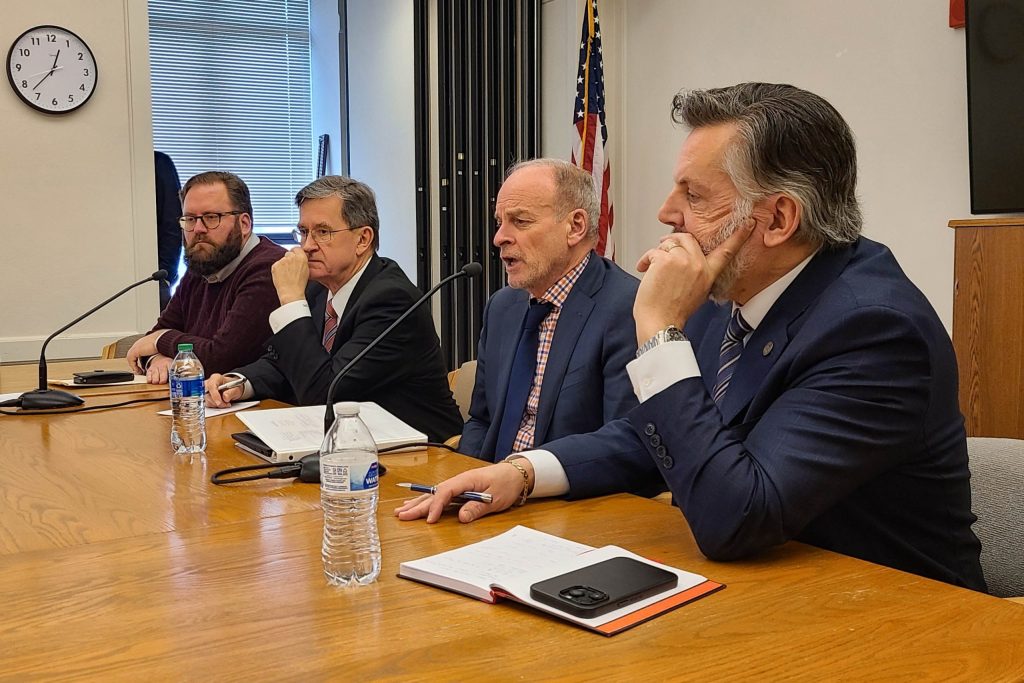By summer’s end, 16 journalism fellows will begin their two-year, state-funded fellowship led by the Edward R. Murrow College of Communication at Washington State University. The fellows will travel to newsrooms across the state to cover multiple news deserts where underserved communities lack access to local journalism.

The fellowship is modeled after the recently established California Local News Fellowship which bankrolls 40 career journalists out of the UC Berkeley Graduate School of Journalism. The California fellowship began as a response to the state’s own journalism crisis, where one in four news publications ceased operations between 2004 and 2019, according to the University of North Carolina Hussman School of Journalism and Media.
The WSU fellowship, financed by a new $2.4 million apportionment in state funds, has been championed by Sen. Karen Keiser (D-Des Moines) and Sen. Marko Liias (D-Edmonds).
“A strong press is fundamental to a thriving democracy,” said Keiser, herself a graduate of the UC Berkeley Graduate School of Journalism. “Yet Washington has lost 20% of its newspapers over the past two decades. That means in many communities, school board meetings aren’t being covered, court proceedings aren’t being scrutinized, and local government actions aren’t being questioned.”
Access to local journalism has been in decline across all states in the last two decades, according to the State of Local News 2023.
“There are 203 counties that currently are news deserts, with no newspapers, local digital sites, public radio newsrooms or ethnic publications,” explains Tim Franklin, Senior Associate Dean and Director of Medill Local News Initiative. “The local news crisis has metastasized like a slow-moving cancer coursing through the bloodstream of enclaves from suburbia to rural America.”
In Washington, only one county has zero news outlets – Asotin County – and 10 counties with only one news outlet – Jefferson, Mason, Wahkiakum, Cowlitz, Skamania, Douglas, Ferry, Whitman, Garfield, and Columbia counties – according to the report.
Of these hard-hit regions, only Jefferson and Columbia counties will gain coverage through the fellowship while other fellows will be sent to Walla Walla, Pend Oreille, Spokane, Snohomish, Whatcom, and Skagit counties, with more locations to be announced.
Upon their arrival at their host newsroom, the fellows will be mentored under their new editors and coworkers, despite the fellows likely out-earning their more experienced counterparts.
The average entry-level salary for Washington reporters lands at roughly $42,000 as of June 2024, according to HR data, but the fellows will begin their careers earning $55,000. They will also receive benefits and stipends for travel and equipment.
The salary disparity raises one important question: will the newfound reporters remain in small newsrooms after their fellowships, knowing their salary would likely decrease if they signed on? Even so, many newsrooms are experiencing massive cutbacks and would be unable to offer full-time reporting positions if they did have the interest.
The greater concern is the conflict of interest of the state financing the salaries of journalists, whether directly or indirectly.
Last year the program originally had fellows set up as direct employees of the state, but after the urging of Washington residents and reporters, WSU entered as a third party to distribute the $2.4 million in funding.
Some assert that funneling funds through a university, rather than placing journalists on the state payroll, is enough to assuage government interference in local reporting.
Benjamin Shors, the fellowship director and Murrow’s Chair of Journalism and Media Production, said he asked fellows to sign a memorandum “that clearly states that editorial decisions belong to the news organizations, not to WSU or the state.”
But signing a document will not magically erase the conflict of interest. Will journalists overcome the temptation to go easy on politicians who promise to keep them employed? Even if they do, will they not face accusations of bias from the public regardless?
But many journalists looking at the state of local news are scrounging for any solution to the crisis.
“The for-profit business model for local news is broken,” writes Christa Scharfenberg, reporter for Nieman Lab, home to the oldest journalism fellowship program in the country. “We need to explore all available options, including public financing models being considered at the federal and state levels.”
Love it or hate it, the public funding seed for state-funded journalism has been planted in Washington state.
The question remains: can journalists on one hand hold government officials accountable while holding out the other for their paychecks? This question has been debated for decades, and it is not likely we will come to a consensus now.
Author: Olivia Thiessen











2 Responses
What part of Separation of Press and State do they not understand?
During my childhood I lived in isolated and small mining towns which had no churches. I wonder why it never occurred to someone that the state should create seminary fellowships to provide clergical services to those rural areas.
Mind Boggling.
The two far left progressives in our legislatire now wanting more journalists to report their ideology, how appropriate! And the state pays for it. How absurd!